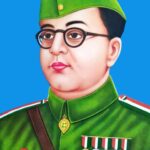Kim Jong-un 2025: Supreme Leader of North Korea
Full Name: Kim Jong-un
Born: January 8, 1984 (or 1983, as his exact birthdate remains uncertain), Pyongyang, North Korea
Nationality: North Korean
Political Party: Workers’ Party of Korea
Position: Supreme Leader of North Korea
Father: Kim Jong-il
Grandfather: Kim Il-sung (Founder of North Korea)
Early Life and Education: Kim Jong-un
Kim Jong-un is the third and current Supreme Leader of North Korea, succeeding his father, Kim Jong-il, after his death in 2011. Kim Jong-un was born in Pyongyang, North Korea, to Kim Jong-il, the nation’s previous leader, and Ko Yong-hui, who is considered the “Mother of the Nation” in North Korea due to her family’s close ties to the regime.
Kim Jong-un’s early life was shrouded in secrecy, a characteristic typical of North Korea’s leadership. For many years, little was known about his upbringing. However, it is now known that he was educated abroad, with reports suggesting he spent time at a private school in Switzerland, where he went under an assumed name. There, he is believed to have received a Western-style education, becoming fluent in German and French. His time abroad gave him a broader worldview compared to previous leaders of North Korea, who were more isolated from international experiences.
Upon returning to North Korea, Kim Jong-un was trained in various aspects of leadership and governance, and was eventually groomed to take over the leadership of the country after his father’s death. His father’s and grandfather’s military legacies, which had a deep impact on the country’s military-first policy (known as Songun), strongly influenced Kim Jong-un’s rise to power.
Rise to Power
Kim Jong-un’s ascension to power was a swift transition, following the death of his father, Kim Jong-il, in 2011. Despite being the youngest of Kim Jong-il’s children, he was quickly chosen as the successor, largely due to the decision of his father to designate him as his heir apparent in the years leading up to his death. At the time of his father’s death, Kim Jong-un was still relatively young, and his leadership was initially met with skepticism by both domestic and international observers.
Kim Jong-un’s rise to power was supported by key military leaders, but also by his uncle Jang Song-thaek, who played a crucial role in consolidating Kim Jong-un’s power in the early years. However, in 2013, Kim Jong-un ordered the execution of his uncle for alleged treason, an action that marked his determination to assert control over the country and eliminate any threats to his authority.
Over the following years, Kim Jong-un took steps to further consolidate his power. He replaced key officials in the military and government to solidify his position. In the years that followed, he displayed a commitment to maintaining the Kim dynasty’s control over North Korea while consolidating his own influence.
Leadership Style and Policies
Kim Jong-un’s leadership has followed many of the same authoritarian practices as those of his father and grandfather, but with several notable differences. His leadership style is often described as both ruthless and highly centralized, and he has maintained the totalitarian regime that has been in place since the founding of North Korea.
1. Military and Nuclear Development
One of Kim Jong-un’s most significant policies has been the advancement of North Korea’s nuclear weapons program. Since taking power, he has overseen the expansion of the country’s nuclear arsenal and has conducted a series of nuclear tests and ballistic missile launches. This aggressive stance has resulted in heightened tensions with the United States, South Korea, and Japan, and has led to international sanctions aimed at curbing the regime’s military ambitions.
Kim Jong-un’s decision to focus on nuclear weapons was in part a response to perceived threats from the West, but it also serves as a means of ensuring his regime’s survival. The development of nuclear weapons is seen as a key tool of deterrence for North Korea, ensuring that the international community is less likely to intervene in its internal affairs.
2. Economic Challenges and Reforms
While Kim Jong-un has maintained a focus on military development, he has also acknowledged the economic challenges facing North Korea. He has occasionally expressed interest in economic reform, although these efforts have been limited and have not significantly altered the country’s centralized economic model.
In recent years, Kim Jong-un has introduced some measures aimed at improving agriculture and encouraging small-scale private markets. These reforms have allowed limited private trade to take place in the country, helping to alleviate some of the food shortages and economic hardships. However, North Korea remains one of the poorest countries in the world, largely due to ongoing sanctions, its isolation from the global economy, and the inefficiency of its state-run economy.
3. Human Rights and Repression
Under Kim Jong-un’s leadership, North Korea has continued its legacy of political repression. The regime is notorious for its human rights violations, including widespread political imprisonment, forced labor, and restrictions on freedom of expression. The totalitarian regime uses surveillance, indoctrination, and punishment to maintain control over its population.
The Korean Workers’ Party has retained its grip on the country’s political system, with Kim Jong-un remaining the central figure in all political decision-making. There is no political opposition, and any dissent is quickly crushed, often with brutal consequences.
North Korea’s human rights record has drawn criticism from the United Nations and human rights organizations. Despite these concerns, Kim Jong-un has largely ignored international calls for reform, asserting that such matters are internal to North Korea.
4. International Relations and Diplomacy
Kim Jong-un’s leadership has been characterized by both confrontation and diplomacy, particularly with the United States and South Korea.
In recent years, Kim Jong-un has taken steps to engage diplomatically with the international community. One of the most high-profile events of his leadership was his series of summits with U.S. President Donald Trump, starting in 2018. The meetings, including the historic Singapore Summit, were seen as a breakthrough in relations between the two nations. Kim Jong-un promised to work toward denuclearization, but tangible progress on this front has been limited.
Kim Jong-un has also held talks with South Korean President Moon Jae-in and has pursued dialogue with other countries, such as China and Russia, to solidify economic and political support for his regime. Despite these diplomatic overtures, North Korea’s nuclear ambitions continue to be a major point of contention in international relations.
Challenges and International Tensions
Kim Jong-un’s leadership is constantly challenged by both internal and external pressures. North Korea’s nuclear weapons program remains a primary source of tension with the international community, and the country has faced a range of economic sanctions that have affected its economy.
Additionally, North Korea’s relationship with its closest ally, China, remains one of delicate balance. While China provides support to North Korea, especially in terms of economic aid, it also seeks to maintain stability in the region, which sometimes puts it at odds with North Korea’s more aggressive policies.
At home, Kim Jong-un must contend with the continuing economic hardships faced by the North Korean population, which struggles with food insecurity, economic stagnation, and poverty. The leadership’s focus on the military and nuclear development has sometimes come at the expense of meeting the basic needs of the people.
Legacy and Future
Kim Jong-un’s leadership has ensured that the Kim dynasty remains firmly in power, but his regime’s future is uncertain. The leadership’s focus on nuclear weapons has left North Korea increasingly isolated from the rest of the world, and the country’s ongoing human rights violations continue to draw international condemnation.
Kim Jong-un’s ability to maintain the loyalty of his military and political elites will be key to his continued rule. His ability to navigate international diplomacy, while managing the domestic economic challenges of his country, will determine the future course of North Korea and its place on the global stage.
As of now, Kim Jong-un remains the most powerful figure in North Korea, and his leadership continues to shape the country’s political landscape. His ability to balance both internal consolidation and external diplomacy will define his legacy in the years to come.











What’s up, I would like to subscribe for this blog to take latest updates, thus where can i do it please assist.
my blog post; https://jili-kh.com/